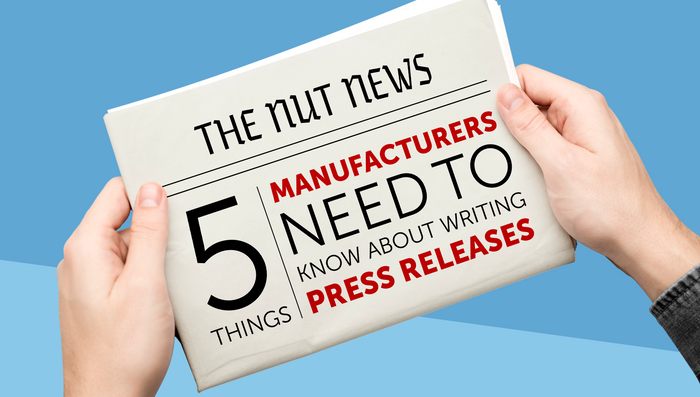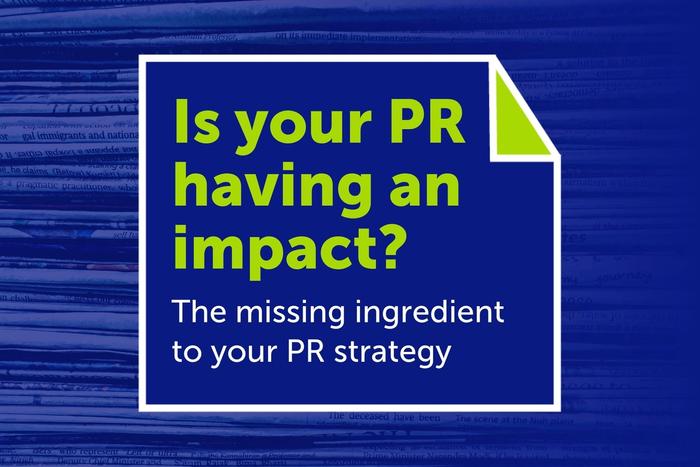PR
19 of the Biggest Mistakes Brands Make With Press Releases by the Journalists You Want to Read It
So you’ve put together a press release you think is front-page news?
Before you press ‘send’, wouldn’t it be wonderful if you could ask the UK’s leading business journalists what their biggest bugbears are? Oh look, we have…
- “Warbling” subject lines
For Rebecca Burn-Callander former enterprise editor at The Telegraph, writing “warbling” subject lines means instant death for your beautifully crafted story. She says: “If your pitch is about robots, just say: ‘EXCLUSIVE: Robots to replace humans within 5 years', not ‘Robotic technologies to evolve to replace human labour within a number of years if current trends continue’.” - Sending the release as an attachment
Not pasting the release into the email itself is another no-no for Rebecca. “This means I have to actually download and open the thing to see what it’s about. Rookie PR mistake.” - SHOUTY CAPITALS IN THE SUBJECT LINE
For ex-Management Today’s online editor and current group managing editor of New Statesman Media Group, Emma Haslett, press releases that arrive with a subject line in capital letters are fatal. Simples. - Saying “I know this isn’t your usual topic…”
Rebecca often gets releases that don’t relate to her beat. “Don’t waste time sending something irrelevant,” she says. - Getting basic details wrong
It seems obvious, but for Gabriella Griffith (News UK's former Assistant Commercial Editor and City AM’s former diary editor), getting basic stuff like her name (there’s no S!) wrong happens far too often. “Dear Gabrielle Griffiths really doesn’t inspire me to read on,” says Gabriella. “And I had an email the other day from a business quoting Google’s motto. They wrote ‘Do No Evil’, it’s ‘Don’t be Evil.’ Get it right.” - Not stating what your business does
Charles Orton-Jones is the former editor of EuroBusiness and former PPA Business Journalist of the Year. Charles hates it when press releases don’t state clearly what the business does. “When a release says ‘solutions provider’ I’m confused, do they mean industrial chemical solvents?” - “Solution”, again
Scott Payton has edited international business magazines and written for the Financial Times, the Spectator and the Independent among others. Like Charles he abhors the S word. “Things that prompt me to click delete include the word ‘Solution’ in the headline. Almost a decade after the wretched word became ubiquitous in business speak, it’s still everywhere – and still meaningless.” - Putting the wrong publication in the greeting
Rebecca says: “If you want to really p*ss me off, put the wrong publication in your greeting. That lets me know that I am just one of many journalists that you’ve pitched the story to – and that my publication wasn’t even your first choice. - Putting ‘Urgent’ in the subject line when it’s really not
Another gripe from Emma is making your press release ‘urgent’ when it’s not, is likely to have the opposite effect and ensure it ends up binned. - Spraying and praying
Contributor to Forbes and editor of minutehack.com, Dan Matthews, hates the scattergun approach. “My number one complaint is to people who fire off press releases without considering if they’re relevant to the journalists or not,” says Dan. “Much better is to target a handful of writers you know for sure will be interested.” - Verbose intros
“A software firm, who will remain nameless, insist on sending me releases which begin with seven lines of boilerplate blather before getting to the point,” says Charles. “Each time they mention their company name they append it with Nasdaq ticker data, ® and TM copyright information, share price, disclaimers and tonnes of other assorted junk. Meh. Delete.” - Omitting survey numbers
Strong statistical data is gold to journalists – but only if they know the sample size. “The biggest thing press release writers miss is the number of people taking part in the survey,” says Dan. “If it’s 2,000 I might write up the story, if it’s 50 I might not. But if I don’t know, it’s just an excuse not to progress the piece.” - Putting “profits not released”
“I need to know how big the firm is,” says Charles. “Staff numbers, turnover, number of offices, all help me understand the market position of a firm – telling me ‘profits are not released’ is absurd. Companies House has a public record of all this data.” - Tenuously latching onto a news item
“I hate it when PRs try to make something completely unrelated relevant to a news story,” says Emma. “Like ’10 reasons why tampons are a bit like the World Cup’”. Newsjacking is great, but ONLY when it's done well. - Releases starting with “Story for Monday”
For Scott, a ‘story for Monday’ is a story for the bin. “I often read them as ‘We know this is a bit weak, but you might be desperate to fill some space over the weekend so this might do.’” - Calling up 30 minutes after you’ve sent the release
For the former founding editor of LondonlovesBusiness.com, Sophie Hobson, following up too fast after you send the release is very irritating. “Give me a chance to read the email!!” says Sophie. - Not making the embargo clear enough
If you’ve got an embargo, put “EM-BLOODY-BARGOED” in giant red bold letters says Emma. - Don’t attach massive files
Rebecca says: “If there are good pictures for a story, tell me, and maybe attach one tiny low-resolution one with a link to a Dropbox, but no massive files please.” - Always include a mobile number
Journalists work to tight deadlines and being able to get hold of the press release author is vital. “Always include a mobile number,” says Rebecca. “If I can’t get you on a landline, I want an alternative contact. Yes, this means I might call you on a Sunday morning but, hey, your client will be in Monday’s paper so that’s kind of your job.”
If you need to know more about how to best reach your target audience, Nutcracker are here to help. Give us a call on 020 3941 0305 or contact us today.
Share this:





